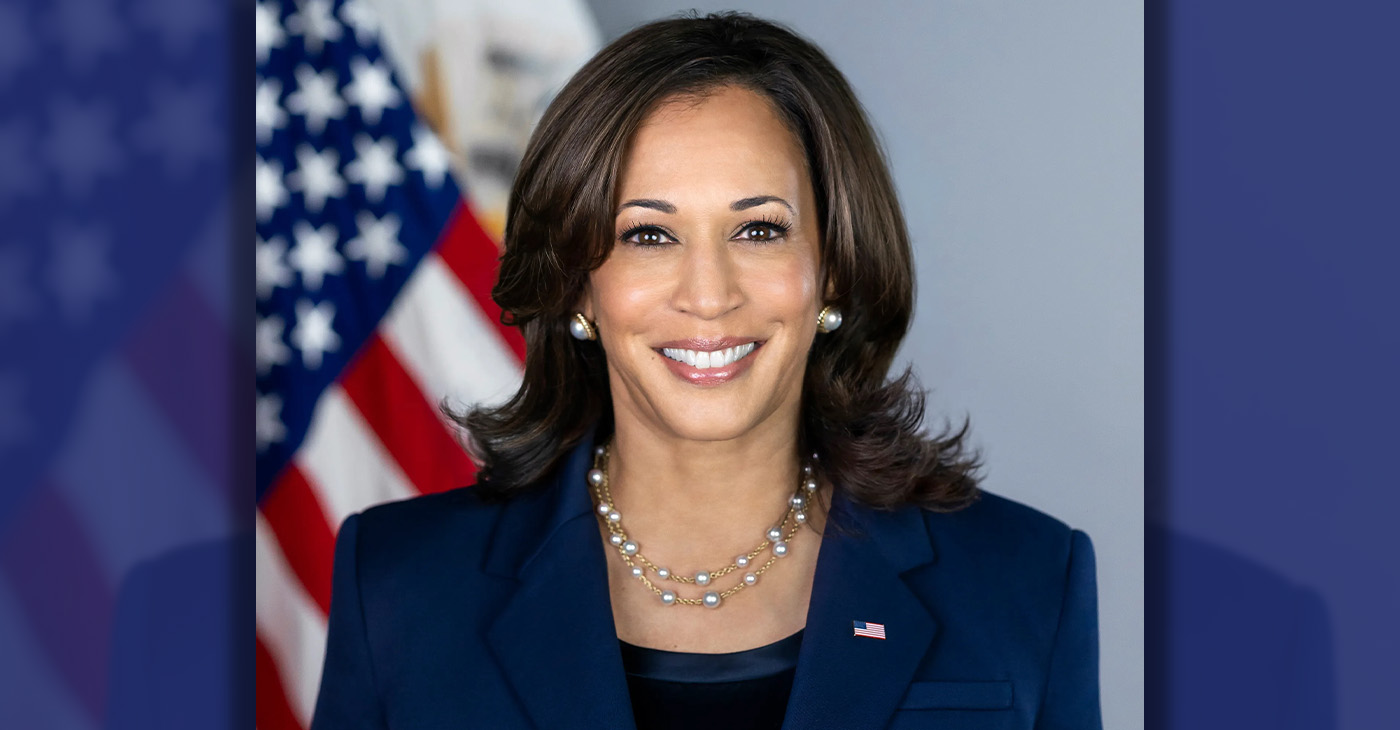Business
To Grow Black Businesses, Think Big
Jacksonville Free Press — Our national economy is barreling ahead, but at the same time millions of people are being left behind.
By Charles Griggs
“Systems are perfectly designed to achieve the results they are achieving right now. At first glance, when we look at how dysfunctional existing systems can be, this premise seems absurd.” – David Peter Stroh
Our national economy is barreling ahead, but at the same time millions of people are being left behind. Poverty and unemployment rates are down, but these indicators mask the financial tightrope that many working families walk every day. Because of a strong and steady stock market and relatively low unemployment rates, people tend to lose focus on the fact that there are pockets of the economy that are still struggling.

Charles Griggs
Locally, Jacksonville has paid little attention to the indicators that tell the real story of economic opportunity and the damage caused by neglect. The lack of progress can be traced back decades, but we can also look back to the late 90s when minority set asides were targeted for destruction. Once dismantled, the floodgates were open for the “good ole boy” system to reestablish itself without the burden of those “unnecessary” minority business programs.
In fact, when quotas went away they said it would be better for Black-owned businesses.
Has it been? It’s hard to tell.
Some might say the ambiguity is on purpose. There is no real data that explains the success or failure of Jacksonville’s Black-owned businesses. The last attempt at trying to understand the true landscape of these economic drivers was in 2013 when the City of Jacksonville commissioned its Multi-Jurisdictional Disparity Study. The result was recommendations that concluded the City of Jacksonville should do more to level the playing field for small and minority businesses (surprise, surprise).
While the intent maybe there, doing “more” to assist Black-owned businesses can be subjective. It seems that setting goals as a standard for the inclusion of minority businesses is, as they say, “a no-no,” which makes it easier for Blacks to be left behind. Thereby creating barriers for those who dwell on the outer edges of economic opportunity. And when that happens, we miss the chance to improve conditions for people to provide for their families and build better communities.
Given that African Americans make up 30 percent of Jacksonville’s population, it is imperative that the city addresses the harsh economic realities facing its most vulnerable taxpayers. In order to break the cycle, we must address the system that created it with a sense of urgency and purpose. Policy is one way to provide opportunities and level the playing field, but course correction should come with a bigger want and higher motivation.
If we are going to guide Black-owned businesses to a real place at the table, those benefiting from the current system must be willing to risk engaging at a higher level. For example, New York Governor Andrew Cuomo sent a clear message that 30 percent of all State contracting would go to minorities and women owned businesses. One of the high profile outcomes of this effort includes an $8 billion award to McKissack & McKissack, a black-owned construction management company, to oversee the John F. Kennedy Airport Terminal One Expansion Project. Not only is this a tremendous opportunity for a Black-owned business, but it speaks volumes about New York’s commitment to addressing diversity and inclusion.
And while McKissack & McKissack is a more than capable firm, the stakes are high for those betting on their success.
Currently, according to the most recent City of Jacksonville disparities study, there are no Black-owned businesses in the area capable of shouldering a prime position on a major project such as an airport expansion. But it doesn’t have to be that way. Successful business owners who have benefited at the trough of local contracting should see the bigger picture for the community and work to create ways to help grow Black-owned businesses. And while policy can be a way forward, it is not the complete answer.
Civil rights icon Andrew Young believed that the growth of Atlanta’s African American upper and middle class came as result of convincing the powerful elite (banks, government procurement executives and policy-makers) that they would make more money by being inclusive of Blacks. And so it went.
Thinking big to grow Black-owned businesses will take more than policy commitments and set-asides. It will take the will of those who have the ability to be audacious with their attempts to close Jacksonville’s economic gaps.
Think big on behalf of Black-owned businesses, and bigger outcomes will happen for the entire community.
Visit blackoffee.com, email speaktous@8wgroup.com, and follow me on twitter @CharlesLGriggs.
This article originally appeared in the Jacksonville Free Press.
Business
V.P. Kamala Harris: Americans With Criminal Records Will Soon Be Eligible for SBA Loans
Speaking in Las Vegas on Jan. 27, Vice President Kamala Harris announced a forthcoming federal rule that will extend access to Small Business Administration (SBA) loans to Americans who have been convicted of felonies but have served their time. Small business owners typically apply for the SBA loans to start or sustain their businesses.

By California Black Media
Speaking in Las Vegas on Jan. 27, Vice President Kamala Harris announced a forthcoming federal rule that will extend access to Small Business Administration (SBA) loans to Americans who have been convicted of felonies but have served their time.
Small business owners typically apply for the SBA loans to start or sustain their businesses.
Harris thanked U.S. Rep. Steven Horsford (D-NV-04), the chair of the Congressional Black Caucus, for the work he has done in Washington to support small businesses and to invest in people.
“He and I spent some time this afternoon with business leaders and small business leaders here in Nevada. The work you have been doing to invest in community and to invest in the ambition and natural capacity of communities has been exceptional,” Harris said, speaking to a crowd of a few hundred people at the Brotherhood of Electrical Workers Hall in East Las Vegas.
On her daylong trip, Harris was joined by Horford, SBA Administrator Isabella Guzman, Interim Under Secretary of Commerce for Minority Business Development Agency (MBDA) Eric Morrissette, and Sen. Catherine Cortez Masto (D-Nev).
“Formerly incarcerated individuals face significant barriers to economic opportunity once they leave prison and return to the community, with an unemployment rate among the population of more than 27%,” the White House press release continued. “Today’s announcement builds on the Vice President’s work to increase access to capital. Research finds that entrepreneurship can reduce recidivism for unemployed formerly incarcerated individuals by as much as 30%.”
Business
G.O.P. Lawmakers: Repeal AB 5 and Resist Nationalization of “Disastrous” Contractor Law
Republican lawmakers gathered outside of the Employee Development Department in Sacramento on Jan. 23 to call for the repeal of AB5, the five-year old California law that reclassified gig workers and other independent contractors as W-2 employees under the state’s labor code.

By California Black Media
Republican lawmakers gathered outside of the Employee Development Department in Sacramento on Jan. 23 to call for the repeal of AB5, the five-year old California law that reclassified gig workers and other independent contractors as W-2 employees under the state’s labor code.
Organizers said they also held the rally to push back against current efforts in Washington to pass a similar federal law.
“We are here to talk about this very important issue – a battle we have fought for many years – to stop this disastrous AB 5 policy,” said Assembly Republican Leader James Gallagher (R-Yuba City).
Now, that threat has gone national as we have seen this new rule being pushed out of the Biden administration,” Gallagher continued.
On Jan. 10, the U.S. Department of Labor issued a new rule providing guidance on “on how to analyze who is an employee or independent contractor under the Fair Labor Standards Act (FLSA).”
“This final rule rescinds the Independent Contractor Status Under the Fair Labor Standards Act rule (2021 IC Rule), that was published on January 7, 2021, and replaces it with an analysis for determining employee or independent contractor status that is more consistent with the FLSA as interpreted by longstanding judicial precedent,” a Department of Labor statement reads.
U.S. Congressmember Kevin Kiley (R-CA-3), who is a former California Assemblymember, spoke at the rally.
“We are here today to warn against the nationalization of one of the worst laws that has ever been passed in California, which has devastated the livelihoods of folks in over 600 professions,” said Kiley, adding that the law has led to a 10.5% decline in self-employment in California.
Kiley blamed U.S Acting Secretary of Labor, July Su, who was the former secretary of the California Labor and Workforce Development Agency, for leading the effort to redefine “contract workers” at the federal level.
Kiley said two separate lawsuits have been filed against Su’s Rule – its constitutionality and the way it was enacted, respectively. He said he is also working on legislation in Congress that puts restrictions on the creation and implementation of executive branch decisions like Su’s.
Assemblymember Kate Sanchez (R-Rancho Santa Margarita) announced that she plans to introduce legislation to repeal AB 5 during the current legislative session.
“So many working moms like myself, who are also raising kids, managing households, were devastated by the effects of AB 5 because they lost access to hundreds of flexible professions,” Sanchez continued. “I’ve been told by many of these women that they have lost their livelihoods as bookkeepers, artists, family caregivers, designers, and hairstylists because of this destructive law.”
Activism
Oakland Post: Week of April 10 – 16, 2024
The printed Weekly Edition of the Oakland Post: Week of April 10 – 16, 2024

To enlarge your view of this issue, use the slider, magnifying glass icon or full page icon in the lower right corner of the browser window. ![]()
-

 Activism4 weeks ago
Activism4 weeks agoOakland Post: Week of March 20 – 26, 2024
-

 #NNPA BlackPress3 weeks ago
#NNPA BlackPress3 weeks agoCOMMENTARY: D.C. Crime Bill Fails to Address Root Causes of Violence and Incarceration
-

 #NNPA BlackPress3 weeks ago
#NNPA BlackPress3 weeks agoMayor, City Council President React to May 31 Closing of Birmingham-Southern College
-

 #NNPA BlackPress3 weeks ago
#NNPA BlackPress3 weeks agoFrom Raids to Revelations: The Dark Turn in Sean ‘Diddy’ Combs’ Saga
-

 #NNPA BlackPress3 weeks ago
#NNPA BlackPress3 weeks agoCOMMENTARY: Lady Day and The Lights!
-

 #NNPA BlackPress3 weeks ago
#NNPA BlackPress3 weeks agoBaltimore Key Bridge Catastrophe: A City’s Heartbreak and a Nation’s Alarm
-

 #NNPA BlackPress3 weeks ago
#NNPA BlackPress3 weeks agoBaltimore’s Key Bridge Struck by Ship, Collapses into Water
-

 Activism3 weeks ago
Activism3 weeks agoOakland Post: Week of March 27 – April 2, 2024














































